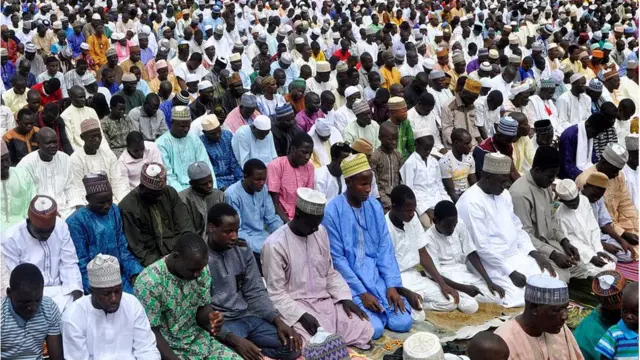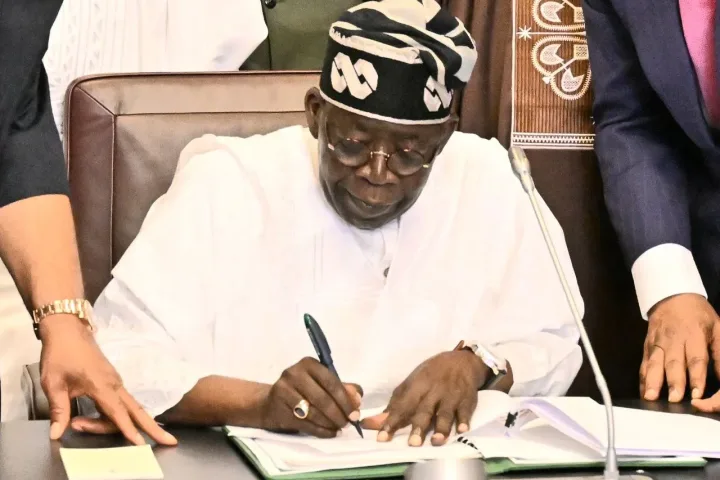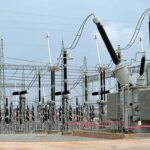As Nigeria, the most populous country in Africa celebrates its 63rd independence anniversary, failure to fix power sector problems has undoubtedly remained a major albatross to industrial growth in the country.
In what seems like a stubborn ailment as some analysts have described it in the past, the scourge has seemingly defied medications as successive governments for over six decades have failed to fix it, constantly plunging Nigerians into darkness, taking a heavy toll on businesses that reel under the burden of high energy costs.
Join our WhatsApp ChannelEven the privatisation that took place with the unbundling of generation, and distribution companies, hitherto touted to be the best antidote, has turned out to be the opposite of what was expected.
With over 200 million population, one of the main issues in the power sector is the lack of adequate power generation capacity. The country has a total installed generation capacity of 12,500 megawatts (MW) and can only manage to transmit and distribute between 3,500 and 4,000MW. This is what Nigerian homes and businesses share for their power consumption needs. It often results in frequent power outages and a lack of reliable electricity supply, which has a detrimental effect on industrial activities.
READ ALSO: Power: Nigerians In Dilemma Of National Grid Collapse And High Fuel Cost
Electricity Access
According to data from the World Bank, only 55.4 per cent of the Nigerian population has access to electricity. It further reveals that only 24.6 per cent of the rural population has access to electricity.
A World Bank 2021 report on Nigeria’s power sector recovery programme showed that 90 million Nigerians are living without access to the electricity grid.
These grim realities mean that the West African nation is nowhere near meeting the 2030 target on access to electricity. The UN Sustainable Development Goal 7 (SDG7) is to ‘ensure access to affordable, reliable and modern energy including universal access to electricity and clean cooking.
Another World Bank report last year estimated that Nigeria would need to connect between 500,000 to 800,000 new households to electricity sources every year until 2030 to be able to achieve its targets of universal access to electricity for its citizens.
The reports of recurring national grid collapse in the country have become like a song muttered whenever the entire country is thrown into blackout just like it happened recently.
Within a space of five days, the national grid collapsed at least three times, dropping from a peak of 3,594.60 megawatts (MW) at midnight to a meagre 42.7MW at 12 noon on Tuesday, 19 September 2022.
In 2022, the grid collapsed seven times as the government kept promising to address the problem.
These happen irrespective of heavy funds pumped into the sector but with no commensurate results.
Egypt, a country in north Africa, for instance, has an installed electricity generation capacity of approximately 58,000 MW making it one of the highest in Africa, with 100% access for a population of about 80 million people. Similarly, South Africa, with a population of approximately 61.4 million (far less than Nigeria), has a total domestic electricity generation capacity of 58,095 MW from all sources, as indicated by the country’s Ministry of Mineral Resources and Energy. Outside Africa, Brazil which has a similar population size with Nigeria, has an installed capacity for electricity generation surpassing 189 gigawatts.
READ ALSO: We’ll Remove All Obstacles In Power Sector Value Chain – Tinubu
Obsolete Distribution Infrastructure
According to reports, Nigeria’s distribution infrastructure has become outdated and in dire need of investment. The power transmission and distribution infrastructure suffers from inadequate maintenance and is unable to efficiently distribute the available power to consumers. This according to experts, often leads to power losses during transmission and distribution, further exacerbating the power supply problem.
Another major challenge in the power sector is the issue of gas supply. Gas is the main source of fuel for power generation in Nigeria, but there are significant challenges in sourcing and supplying gas to power plants. Issues such as pipeline vandalism, gas flaring, and inadequate infrastructure hinder the availability of gas, thereby affecting power generation. Former Minister of Power, Jerry Agba in May this year, affirmed that the challenge associated with the shortage poor power supply. He then said there were efforts being made to boost supply.
Also, the lack of cost-reflective tariffs is also a major obstacle in the power sector. Electricity tariffs in Nigeria are said to be heavily subsidized, leading to a significant revenue shortfall for power generation and distribution companies. This according to analysts, is partly responsible for the inability of the managers to invest in infrastructure upgrades and improve the overall performance of the power sector.
The World Bank in a report estimated that businesses in the country suffer an annual loss of $29 billion as a result of “unreliable” electricity.
These difficulties have a considerable effect on Nigeria’s industrial development. For successful operation, industries rely substantially on a consistent and stable supply of electricity. Due to the requirement for backup power sources like diesel generators, power outages and unstable electricity supply increase operational costs. In turn, this hurts the competitiveness and productivity of the manufacturing sector.
Analysts have said that for Nigeria to ensure that the power sector contributes significantly to industrial development, the authorities need to push more efforts to increase power generation capacity.
While highlighting measures that should be taken to tackle challenges bedeviling Nigeria’s economy, the CEO of Centre for Promotion of Private Enterprise (CPPE), Dr Muda Yusuf, recently stressed the urgent need for the government to expedite action in fixing power problems in the country, adding that it impacts heavily on energy costs for businesses.
Private sector operators have continued to lament about high energy costs. The price of diesel used by power generators for businesses recently surged, selling at N1,100 per litre.
The Nigeria Electricity Act 2023 passed into law on 8 June 2023 by President Bola Tinubu gives hope of an improvement in the power sector if followed with honest implementation as it contains provisions that would create an enabling environment to attract investment in the sector. Apart from granting state governments the authority to engage in power generation, transmission, and distribution, the Act also promotes the integration of renewable sources into the energy mix. it requires electricity generation licensees to meet renewable generation obligations as prescribed by the Nigerian Electricity Regulatory Commission (NERC).
The Minister of Power, Chief Adebayo Adelabu, recently declared the intention of the Federal Government to increase the country’s power generation capacity to 20,000 megawatts by 2026. What remains is to match words with action even when the target is still a far cry when compared to other developed countries with similar population size and resource endowments like Nigeria.
Victor Ezeja is a passionate journalist with seven years of experience writing on economy, politics and energy. He holds a Master's degree in Mass Communication.



















Follow Us